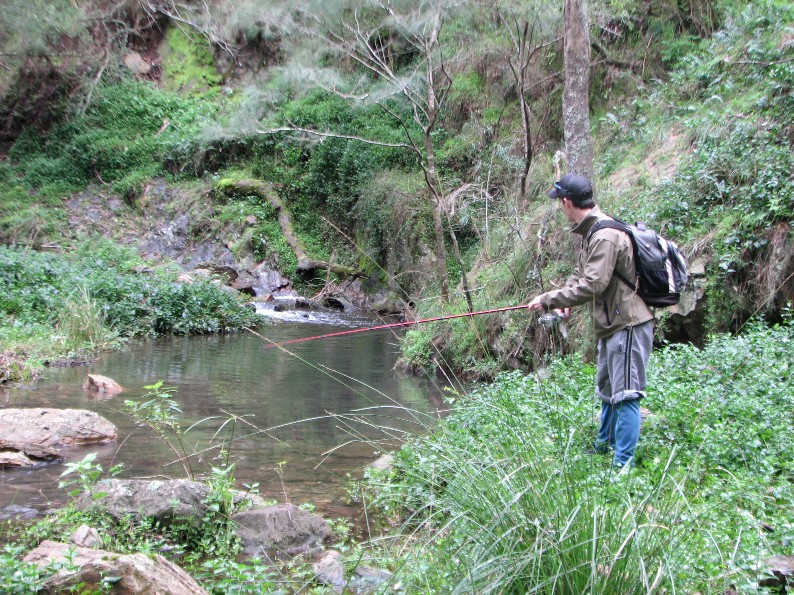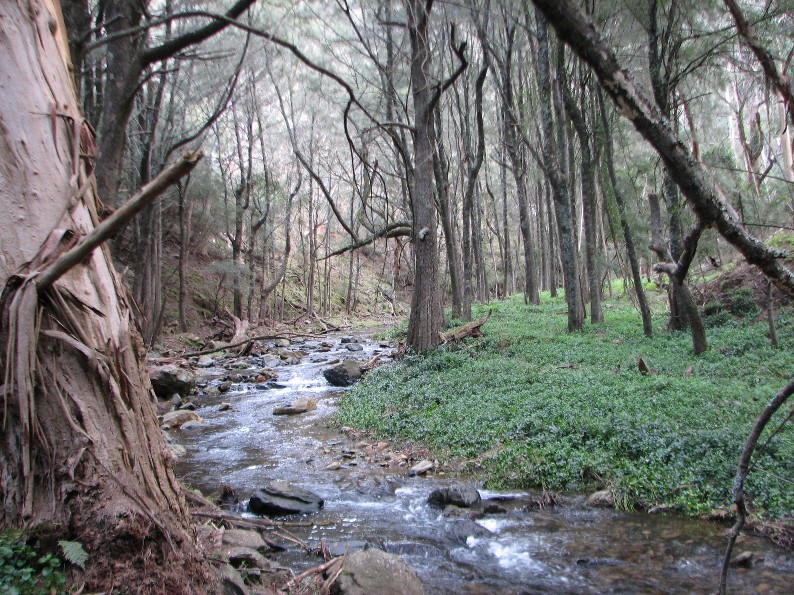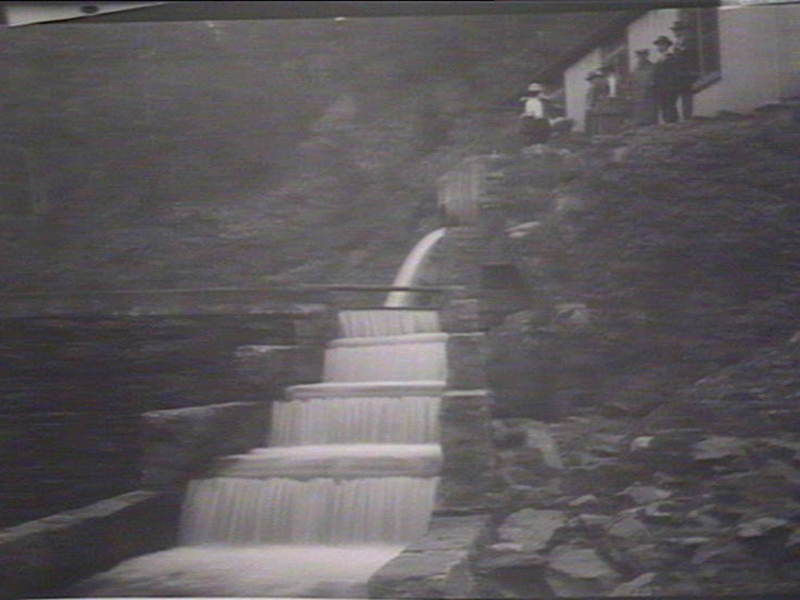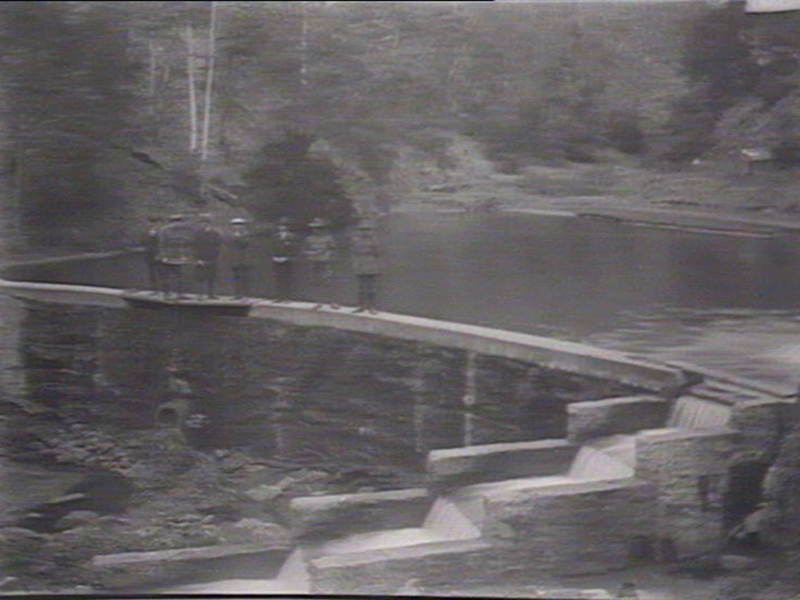Jenolan
River
Sometimes called Harry's
River, Jenolan River is one of the oldest trout fisheries in
New South Wales. Trout were introduced to the river to increase tourist
numbers at Jenolan Caves, and a trout farm was built on the river to
improve the fishery and in turn attract more fishermen.
The river is quite small and most of the trout are not big. A fish of
30cm is a good size, yet 30
years ago fish of 3kg were a regular catch in the lower river. Pools in Hellgate Gorge and further down
stream may still hold the odd large trout.
The caves are now part of a conservation
area and fishing at Jenolan Caves is not permitted. The small
power house at the side of the river is the longest running hydro
station in New South Wales. You will find it a short walk upstream of
the Jenolan camping ground. The
hydro station
is the location of the old trout spawning pool.
The river is closed
upstream of a line 850km downstream of the hydroelectric power station.
This means you can not fish
at the camping ground or anywhere upstream of it. You need to walk
about 600m downstream of the camp ground before you start fishing. You
know once you have reached Bulls Creek it is ok to start fishing.
The Jenolan is a tributary of Cox's River.
It meets the Cox's below Little River which means the Jenolan is not a
general trout stream and may be fished all year round. In the past
spawning trout from Warragamba Dam have been said to travel into the
lower Jenolan to spawn in June and July.

Pictures above and
below: The Jenolan River below Bulls Creek 2009

Regulations
The upper Jenolan is closed to fishing all year round.
That is the whole of the waters of that part of Jenolan (or Harry’s
River), together with all its creeks and tributaries, upwards to its
source from a line drawn at right angles across the river at a distance
of 850 metres downstream, measured along the midstream, from the
swimming pool (also known as the spawning pool) adjacent to the
Hydro-electric Power Station.
The best way to ensure you are not
fishing in the closed waters is to head down stream of where Bulls
Creek meets the Jenolan before you start fishing.
Please do not take fishing gear
out of your car near the caves or at caves house, as you can not fish in this area. The
rangers and caving guides will ask you to put away your fishing gear
(if they see it) and they are not backwards about coming forward.
The lower river below Bulls Creek
has no closed season.
Tips
& Techniques
Casting small celters works very
well. Try to get your lure into the deeper sections of the pool which
is usually the outside of bends or below the rapids at the top of the
pool.
Flies that generally work well include wooley buggers, white moths,
glow bugs (in june & july) and snail paterns.
The fish are very easy to spook as
the water is very clear. You should stand back as far as possible, and
fish from the bottom of the pool or hide at the top so you are out of
the field of view of the fish. If a fish has seen you donk keep casting
at it, just move to the next pool.
Public
Access Points
Jenolan
Camping Ground
The only point that is somewhat easy to reach is the
camping ground just down stream from the Jenolan hydro station. To get
here you have to park just off Jenolan Caves Road at the top of the
fire trail approx 1km east of the grand archway. There is a locked gate
on the fire trail. Take care not to block the driveway or fire trail
gate when parking.
It takes about 20 mins to walk to
the river and about a further 20 mins to walk downstream to Bulls Camp
Creek where you can start fishing. The walk back from the camp ground
will take an extra 10-20mins depending on your fitness level, as the
fire trail is very steep.
There is a toilet, tap and a few
open picnic tables near the river if you decide to camp the night.
Contact National Parks at Blackheath or Oberon for a camping
permit.
Lower
Gorge
It is possible to walk into the lower gorge from Megalong Valley and
the Black Range Fire Trail, however only expirienced bush walkers
should attempt to access this area, and only if they are well prepared.

Pictures above and
below: the spawning pool (date unknown). Thanks to NSW Library

Links
http://bonzle.com/c/a?a=p&p=203245&ss=800&d=faq&cmd=sp&c=1&x=150.081835&y=-33.78401&w=22090
http://www.david-noble.net/BlueMts/Coxs/Coxs.html
|



